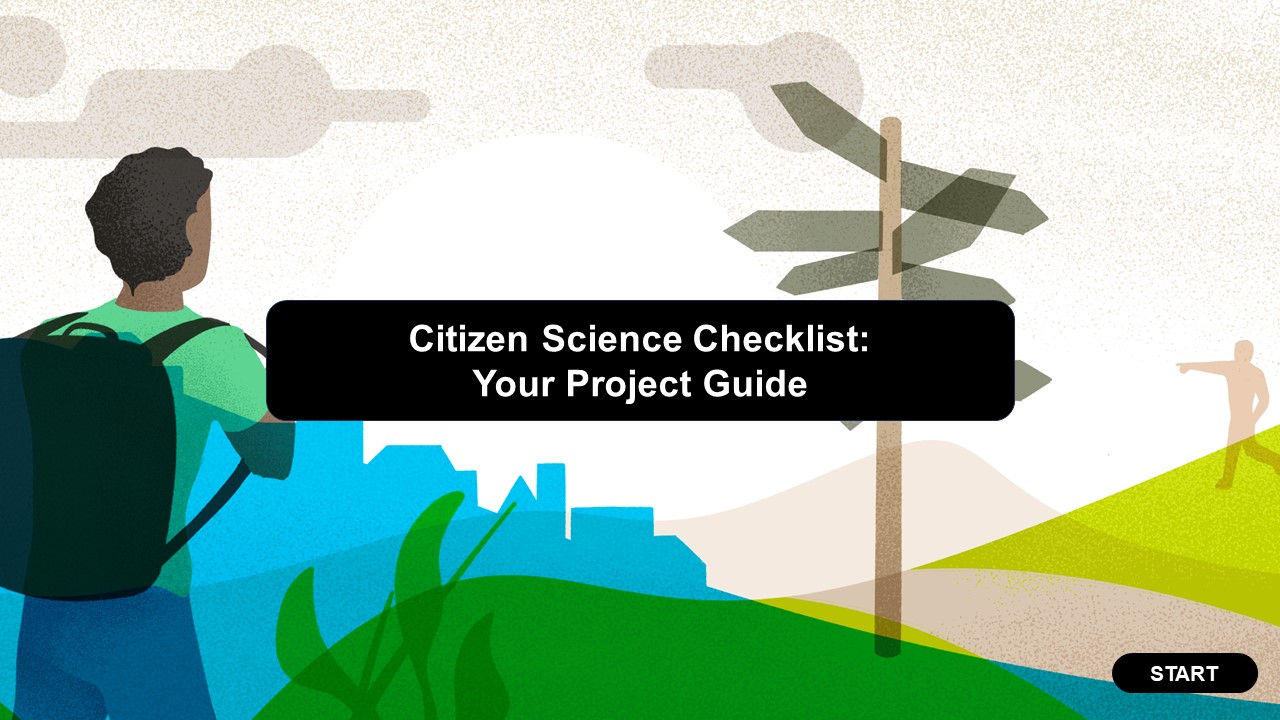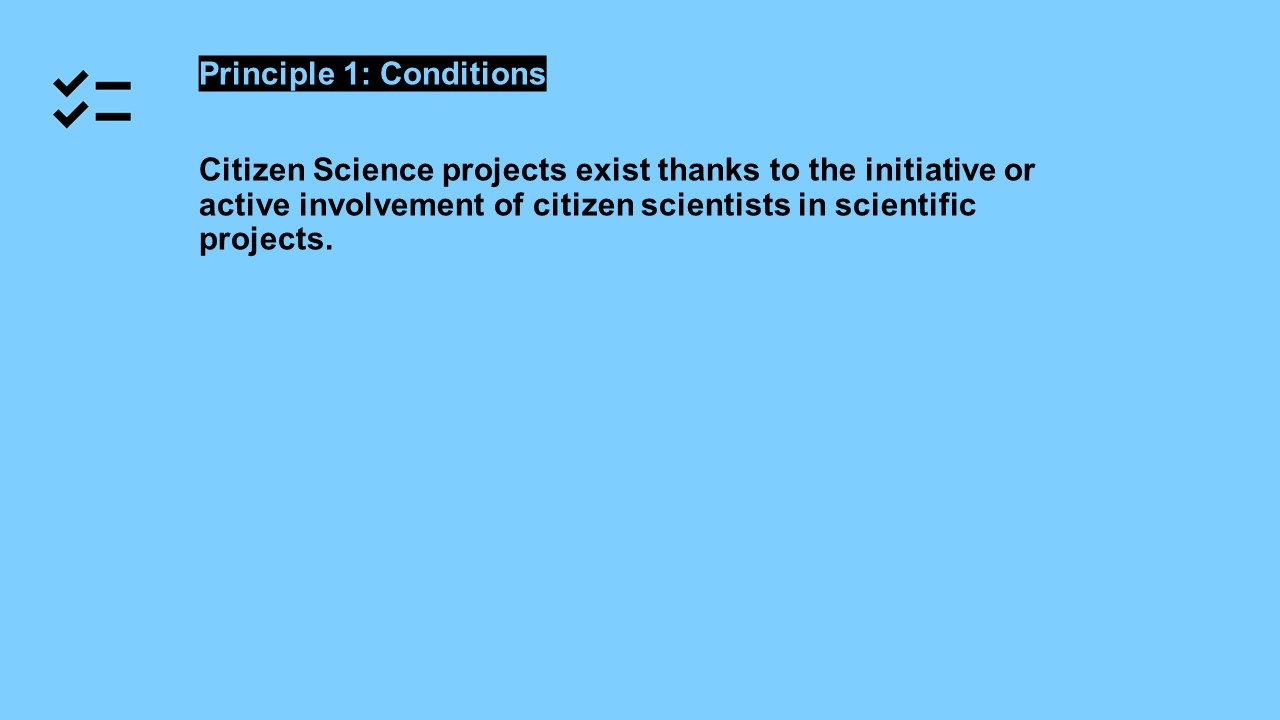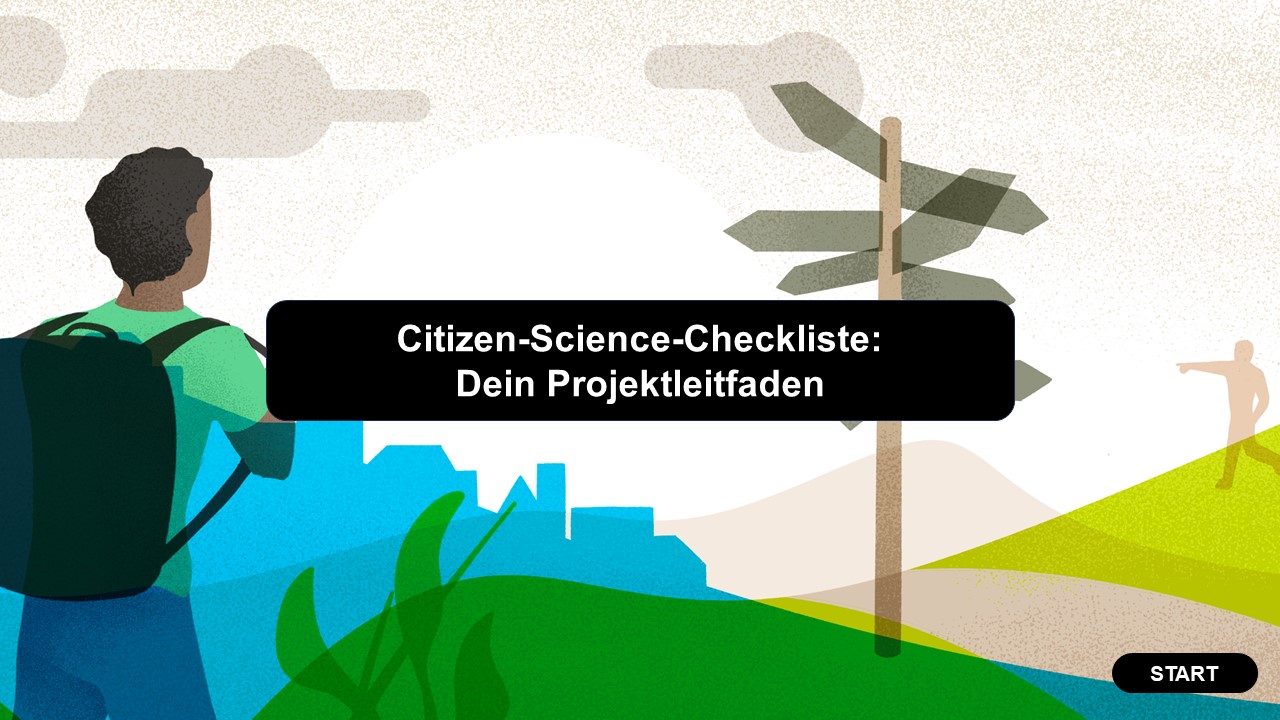The perfect guide for planning and implementing Citizen Science projects
As unique as every Citizen Science project is, certain aspects are relevant for all participatory projects. All projects must address issues such as the added value of the project, the design of the collaboration or accessibility for participation. With our Citizen Science Checklist, no such key questions will remain unanswered in future. And it will help you to include different perspectives and improve the quality of your projects.
Author: Ursina Roffler
Illustrations: Ursina Roffler
Together with Schweiz forscht, we have developed an interactive checklist to help you plan and implement participatory research projects. It is based on the Swiss Citizen Science Principles - ten key values that define what makes a good Citizen Science project in Switzerland. You can read the ten principles in detail in the slideshow below or here. For each principle, the checklist offers reflection questions that encourage you to think about your own project design. It also provides valuable and practical tips for implementation and references to further information and helpful resources.
Whether at the beginning or in the middle
Regardless of whether you are still at the very beginning of a Citizen Science project or are already in the middle of implementation – the checklist is also suitable for making improvements to ongoing projects. It should be used to discuss and clarify key questions within the management team. In this way, the checklist helps to capture the different perspectives, motivations and expectations of all those involved and to incorporate them into the project design.
The checklist will guide you through important questions such as: What added value does the project offer for citizen scientists and for researchers? What requirements do participants need to fulfill to participate and what barriers can possibly be removed? Have resources been considered to promote collaboration and communication? How can the project be evaluated and on the basis of which criteria?
Making a scientific and social impact
"With this checklist, we want to contribute to the success of Citizen Science projects. In order for participatory research projects to be a success and a good experience for everyone involved, there are a number of things to consider when designing and implementing them: different needs, expectations and motivations of the participants should be taken into account, for example, as well as a communication strategy or questions regarding the handling of research data. The checklist helps Citizen Science teams to keep track of the multitude of these important topics and provides a structured framework for reflection and discussion", explains Melanie Brand. She played a major role in shaping the checklist and was the person responsible for the project on our side.
The checklist is also intended to raise awareness of impact-oriented project planning and ensure that the projects are both scientifically and socially valuable. And, as Tiina Stämpfli from Schweiz forscht adds: "Together with the Swiss Citizen Science community, we have developed the 10 Swiss Citizen Science Principles to create a common basis for designing and reflecting on participatory projects. Now we are going one step further: With our interactive checklist, you can design and plan your Citizen Science projects in a scientifically sound way. It will guide you step by step - from the idea to implementation!"
Back to the beginning
The idea for the joint development of the checklist arose as part of the course "Citizen Science II: From Theory to Practice", which we offered at the School for Transdisciplinary Studies at the University of Zurich in the spring semester of 2023. The participating students reformulated the ten Swiss Citizen Science Principles into application-oriented questions in order to review project planning based on the principles.
Building on this basis, we further developed the checklist together with Schweiz forscht. This was followed by a test phase in which we gathered valuable feedback from testers, which was incorporated into the final version. One tester wrote for example: "It is a great concept that has certainly taken a lot of work to implement. Thank you very much for developing this extremely helpful tool for the Citizen Science community. It will be useful for many researchers and make their projects even more valuable for science and society." Someone else noted: "The scope is proportionate because it illustrates that Citizen Science projects need to be approached with extensive planning and responsible implementation. Their implementation takes time and effort, and this is recognized by the scope of the checklist".
However, the checklist is not set in stone. We see it as a tool that we want to continuously develop further based on the experiences of users. That's why we appreciate all feedback.


